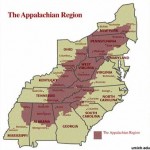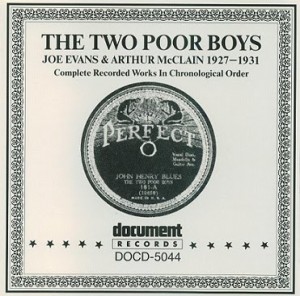For the regular visitors of my blog, it is no news that I consider the blues more or less as an artificial term that has been invented (or at least served well) for marketing reasons. Don’t let me be misunderstood: I adore this type of music that is traditionally labelled as the ‘blues’, but I find the term at the same time too general and too narrow for this musical genre or style, whatever you may want to call it. It just does not justice to the diversity and the richness of the expressions of all those musicians who were out there in the 19th and the beginning of the 20th century who helped to shape the music as we know it today.
I do understand that the market needs to pigeonhole its products in order to sell it. When a record company wants to sell something, it needs a public to target its products. In a record store, one needs different shelves to differentiate between rock, jazz, pop, folk, classic, blues etc. otherwise the customer feels lost and the store owner runs the risk that he doesn’t sell anything. The problem however is that we tend to start thinking in those oversimplified categories, a simplification process which does nothing else than strip away all the creativity and wealth of the musical spectrum that exists amongst the musicians. It comes down to a kind of standardization. It is probably no coincidence that the standardization in the industrial production, which took off for the first time in the 1910’s and 1920’s with the assembly of the Model T-Ford, took place at the same time also in the record business. Record companies also needed a simple communication and marketing tool to sell their products. Music for the black people was, for its ease and convenience (and responding to the social segregation) issued in a separate series of ‘Race Records’, even carrying a specific series numbering. The term ‘blues’ was coined first at the start of the 20s for the vaudeville, female vocalists like Bessie Smith, Ida Cox and many others. In the second half of the 20s, it referred to the hobo-like, country, black artist playing the guitar. It couldn’t be more different, no?
But, just realise, how much we strip reality from all its complexity and beauty of diversification!?
I think that even Samuel Charters in his ‘The legacy of the blues : Art And Lives Of Twelve Great Bluesmen” (1977) is more or less tempted to simplify, though I realise that by stating this I do some injustice to the work of this great blues researcher. He argues in one of the chapters of his book that the blues needs to be considered as a specific language of the black population, found all over the US : it is not a second hand language, a kind of ‘bad’ English, but a very specific language with its own rules and grammar. In the midst of the 20s for the first time, this language came to the foreground as an expression of the ‘othernessness’ of the black part of the American population. There is a lot of truth in this statement, but I think that he just makes too big a jump in his reasoning coming from the spirituals directly to the black country blues. Minstrelsy, vaudeville, hillbilly, rag….this was the music that was played ‘in the country’. This specific blues language did not pop up all of a sudden.
When one wants to have a full picture of the story, one needs to have an eye for the dynamics in that era, and also for the location and social relations where that dynamic evolution took place. Before the record industry spread, songs were handed over from generation to generation. Artists learned from each other, mostly in their own small community. They would learn only about other types of music as far as they could physically travel. The communication means (records, radio, roads) were absent or limited.
Also, in this respect, the boom in communication and transport in the 20’s, and the spread of the records, almost inevitably implied a kind of standardization. Records would only sell if there was a large public to buy it. It was the law of the greatest common denominator….
Therefore, I see it as a pleasure to come across in my investigations, records such as those by Joe Evans and Arthur McCain, a folk-blues duo who recorded in 1927-1931 as the “Two poor boys“.
In 1991, Document Records (originally an Austrian company founded in 1986 to issue old folk and blues music, but now established in Scotland) issued a record by the “Two poor boys”. The sound quality is not very high (transfer directly from the 78), but it is good enough to appreciate the virtuosity of the two men of who very little is known as biographical data. They were great multi-instrumentalists (at least one of the two) playing a wide range of music from ballads, hillbilly, rag, folk & blues using instruments as guitar, flute, piano…They played both for a black and a white audience. That little is known about them that there is even no certainty as to the colour of their skin! Their records were originally issued in the ‘race records’ series, indicating that they would have been black. But it is equally possible that they were white musicians with a pop-negro bent (Journal of American Folklore, vol 81, N° 320, 1968). In any case, it is impossible to tell from their music to say whether they were black or white. I listened a few times yesterday evening to the Document-record, and all I heard was clear evidence of their high level of entertainment and virtuosity. They clearly made their way in the East Tennessee region (Appalachia region),
 home also to the country music and to great names as Jimmy Rodgers and the Carter Family. It is not at all surprising that their music would show a clear print of the fact that the black population was a minority in this region dominated by the English, Scottish and Irish roots, and where the Baptist and Methodist religion had a clear voice.
home also to the country music and to great names as Jimmy Rodgers and the Carter Family. It is not at all surprising that their music would show a clear print of the fact that the black population was a minority in this region dominated by the English, Scottish and Irish roots, and where the Baptist and Methodist religion had a clear voice.
It is precisely this regional variation, this emphasis on the individuality in each blues musician which – in spite of the fact that the basic rhythms of blues may be simple and few in number – makes me a great admirer of this genre. Black or white, who cares ?


